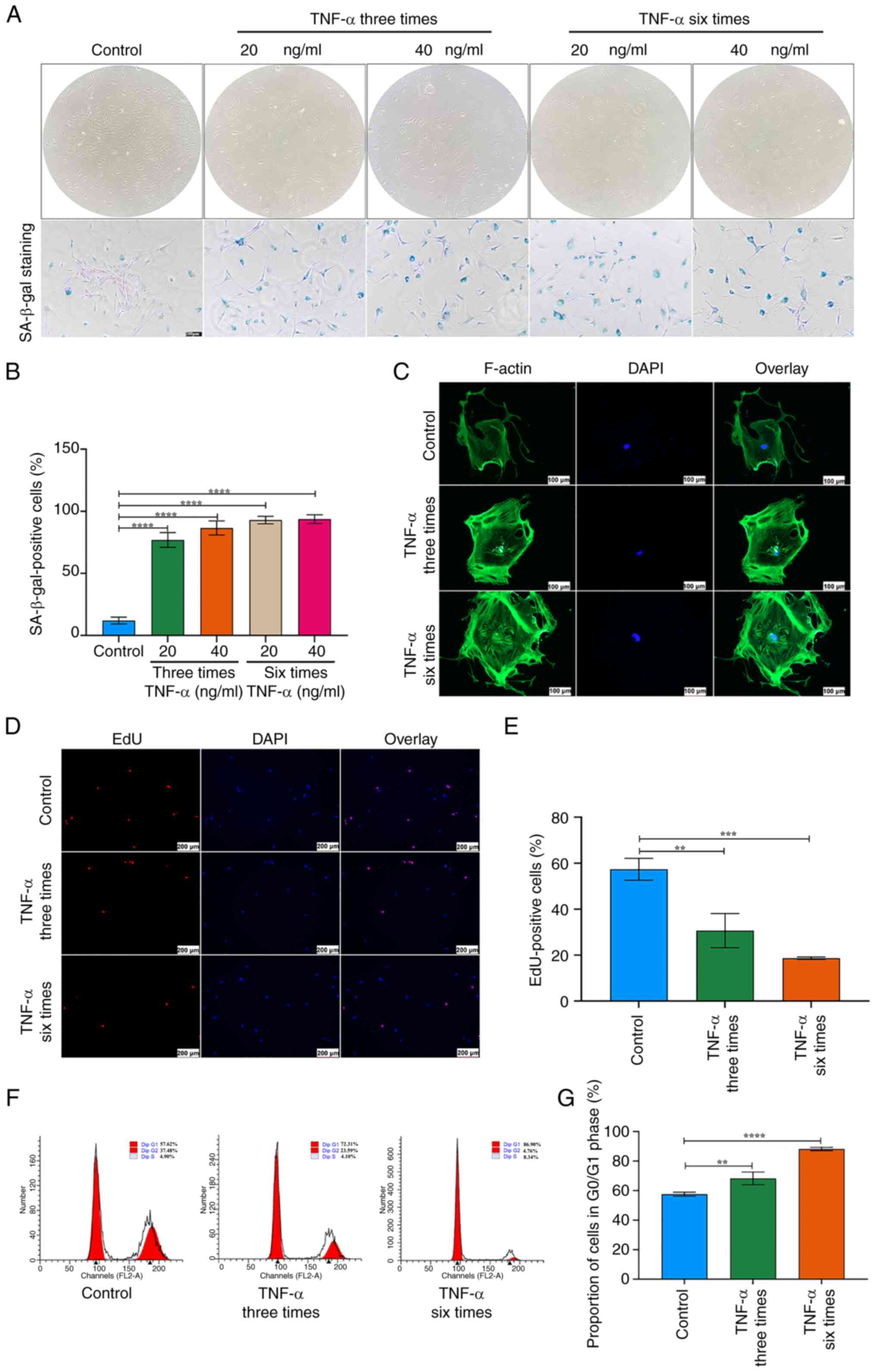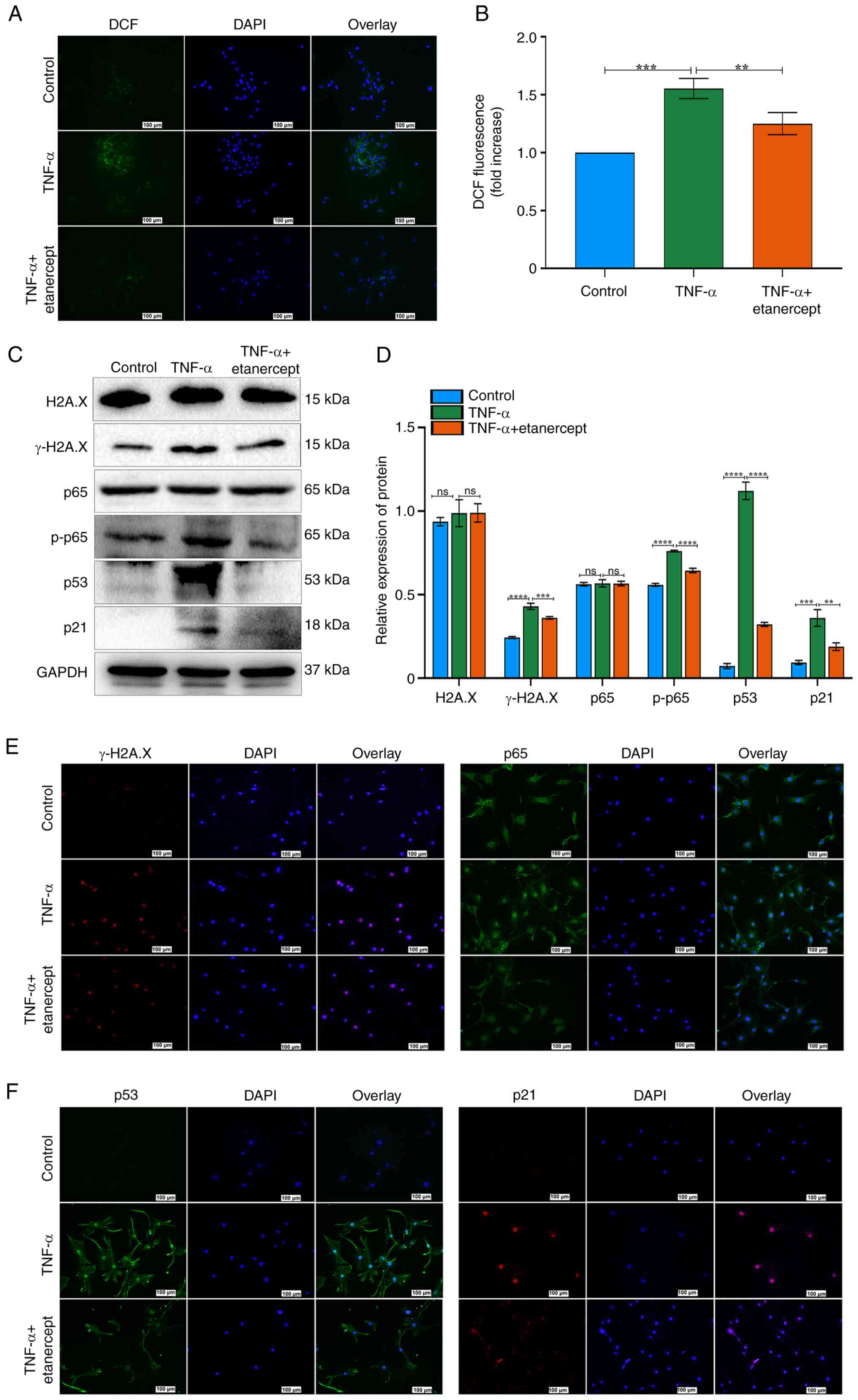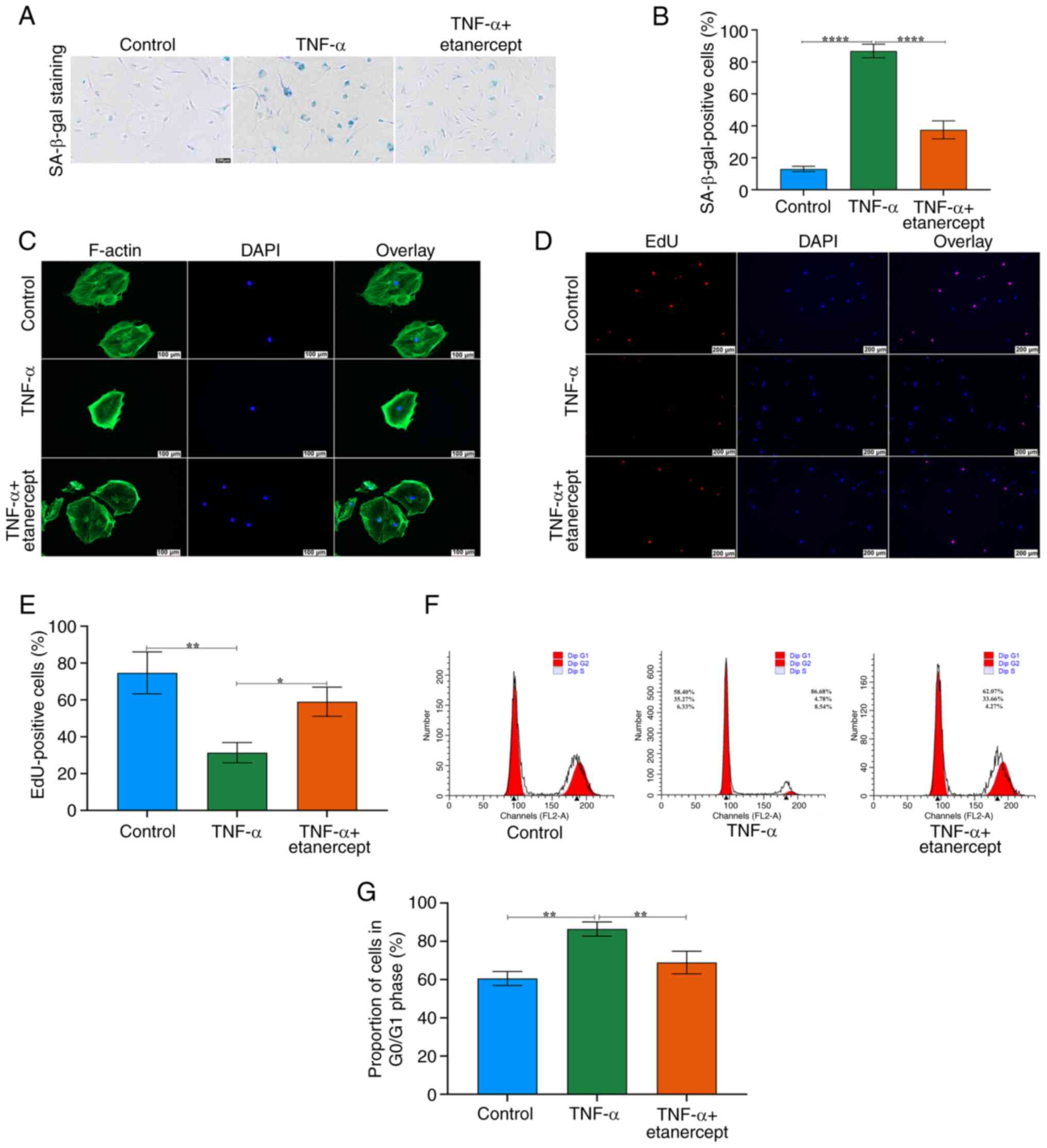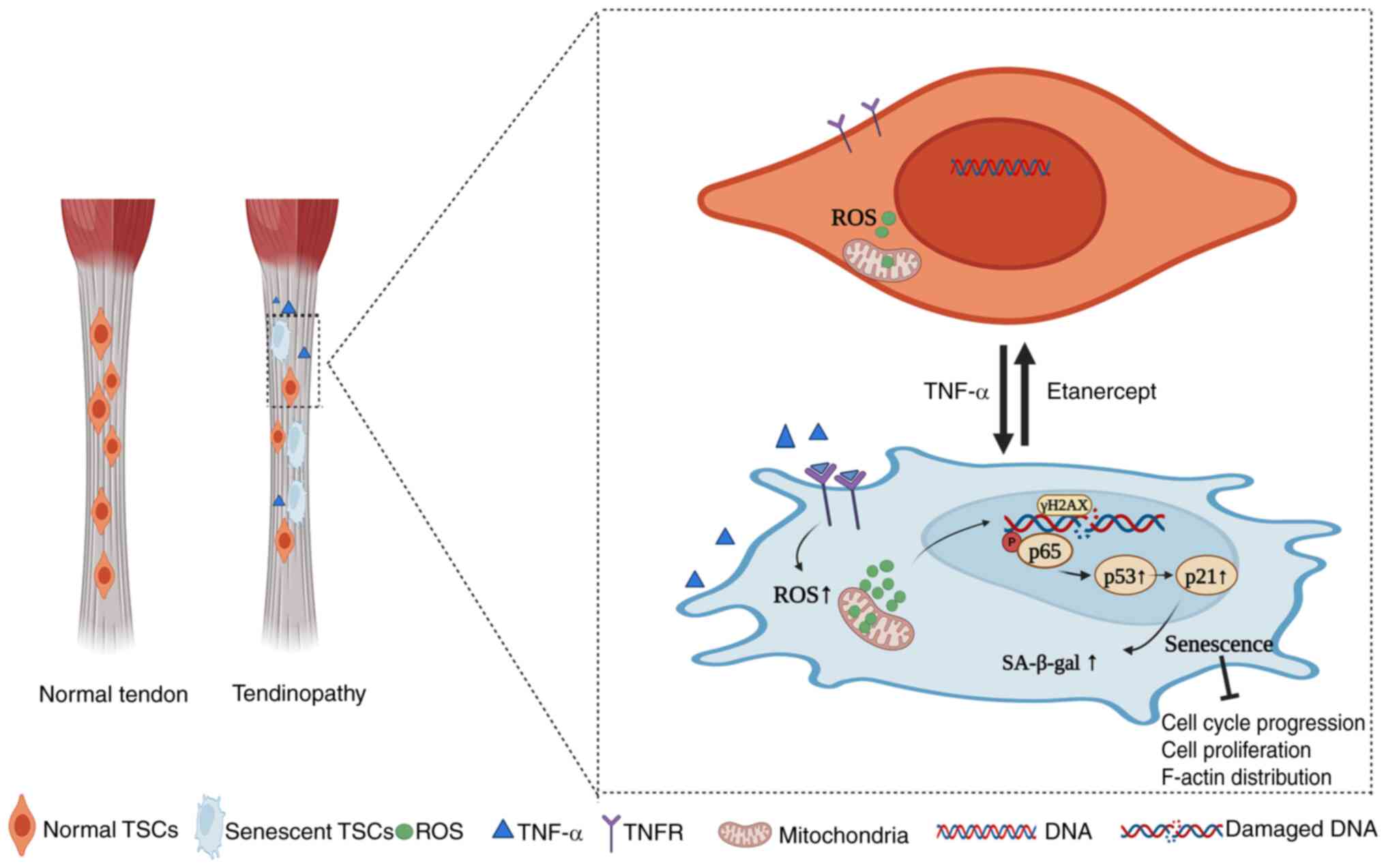|
1
|
Iagnocco A, Riente L, Delle Sedie A,
Filippucci E, Salaffi F, Meenagh G, Scirè CA, Grassi W, Montecucco
C, Bombardieri S and Valesini G: Ultrasound imaging for the
rheumatologist. XXII. Achilles tendon involvement in
spondyloarthritis. A multi-centre study using high frequency
volumetric probe. Clin Exp Rheumatol. 27:547–551. 2009.
|
|
2
|
Alves EM, Macieira JC, Borba E, Chiuchetta
FA and Santiago MB: Spontaneous tendon rupture in systemic lupus
erythematosus: Association with Jaccoud's arthropathy. Lupus.
19:247–254. 2010. View Article : Google Scholar
|
|
3
|
Järvinen TA, Kannus P, Paavola M, Järvinen
TL, Józsa L and Järvinen M: Achilles tendon injuries. Curr Opin
Rheumatol. 13:150–155. 2001. View Article : Google Scholar : PubMed/NCBI
|
|
4
|
Lin YJ, Anzaghe M and Schülke S: Update on
the pathomechanism, diagnosis, and treatment options for rheumatoid
arthritis. Cells. 9:8802020. View Article : Google Scholar
|
|
5
|
Mobasheri A and Shakibaei M: Is tendinitis
an inflammatory disease initiated and driven by pro-inflammatory
cytokines such as interleukin 1β? Histol Histopathol. 28:955–964.
2013.
|
|
6
|
Sharma P and Maffulli N: Tendon injury and
tendinopathy: Healing and repair. J Bone Joint Surg Am. 87:187–202.
2005.
|
|
7
|
Schulze-Tanzil G, Al-Sadi O, Wiegand E,
Ertel W, Busch C, Kohl B and Pufe T: The role of pro-inflammatory
and immunoregulatory cytokines in tendon healing and rupture: New
insights. Scand J Med Sci Sports. 21:337–351. 2011. View Article : Google Scholar : PubMed/NCBI
|
|
8
|
Jeong C, Kim SE, Shim KS, Kim HJ, Song MH,
Park K and Song HR: Exploring the in vivo anti-inflammatory actions
of simvastatin-loaded porous microspheres on inflamed tenocytes in
a collagenase-induced animal model of achilles tendinitis. Int J
Mol Sci. 19:8202018. View Article : Google Scholar : PubMed/NCBI
|
|
9
|
Alfredson H, Lorentzon M, Bäckman S,
Bäckman A and Lerner UH: cDNA-arrays and real-time quantitative PCR
techniques in the investigation of chronic Achilles tendinosis. J
Orthop Res. 21:970–975. 2003. View Article : Google Scholar
|
|
10
|
Choi S, Song MH, Shim KS, Kim HJ, Lim YM,
Song HR, Park K and Kim SE: Therapeutic efficacy of intratendinous
delivery of dexamethasone using porous microspheres for
amelioration of inflammation and tendon degeneration on achilles
tendinitis in rats. Biomed Res Int. 2020:50520282020. View Article : Google Scholar
|
|
11
|
Cho CH and Kim DH, Baek EH and Kim DH:
Serum levels of TNF-α are increased in patients with rotator cuff
tear and sleep disturbance. Diagnostics (Basel). 11:22152021.
View Article : Google Scholar
|
|
12
|
Stengaard K, Hejbøl EK, Jensen PT, Degn M,
Ta TML, Stensballe A, Andersen DC, Schroder HD, Lambertsen KL and
Frich LH: Early-stage inflammation changes in supraspinatus muscle
after rotator cuff tear. J Shoulder Elbow Surg. 31:1344–1356. 2022.
View Article : Google Scholar
|
|
13
|
Frich LH, Fernandes LR, Schrøder HD,
Hejbøl EK, Nielsen PV, Jørgensen PH, Stensballe A and Lambertsen
KL: The inflammatory response of the supraspinatus muscle in
rotator cuff tear conditions. J Shoulder Elbow Surg. 30:e261–e275.
2021. View Article : Google Scholar
|
|
14
|
Weinblatt ME, Kremer JM, Bankhurst AD,
Bulpitt KJ, Fleischmann RM, Fox RI, Jackson CG, Lange M and Burge
DJ: A trial of etanercept, a recombinant tumor necrosis factor
receptor:Fc fusion protein, in patients with rheumatoid arthritis
receiving methotrexate. N Engl J Med. 340:253–259. 1999. View Article : Google Scholar
|
|
15
|
Moreland LW, Baumgartner SW, Schiff MH,
Tindall EA, Fleischmann RM, Weaver AL, Ettlinger RE, Cohen S,
Koopman WJ, Mohler K, et al: Treatment of rheumatoid arthritis with
a recombinant human tumor necrosis factor receptor (p75)-Fc fusion
protein. N Engl J Med. 337:141–147. 1997. View Article : Google Scholar : PubMed/NCBI
|
|
16
|
Pennica D, Kohr WJ, Fendly BM, Shire SJ,
Raab HE, Borchardt PE, Lewis M and Goeddel DV: Characterization of
a recombinant extracellular domain of the type 1 tumor necrosis
factor receptor: Evidence for tumor necrosis factor-alpha induced
receptor aggregation. Biochemistry. 31:1134–1141. 1992. View Article : Google Scholar : PubMed/NCBI
|
|
17
|
Mease PJ, Goffe BS, Metz J, VanderStoep A,
Finck B and Burge DJ: Etanercept in the treatment of psoriatic
arthritis and psoriasis: A randomised trial. Lancet. 356:385–390.
2000. View Article : Google Scholar : PubMed/NCBI
|
|
18
|
Chen K, Li P, Zhao H, Yan X and Ma Y:
Effects of tumor necrosis factor inhibitor on stress-shielded
tendons. Orthopedics. 40:49–55. 2017. View Article : Google Scholar
|
|
19
|
Marhaba R, Klingbeil P, Nuebel T,
Nazarenko I, Buechler MW and Zoeller M: CD44 and EpCAM:
Cancer-initiating cell markers. Curr Mol Med. 8:784–804. 2008.
View Article : Google Scholar : PubMed/NCBI
|
|
20
|
Wang JHC and Komatsu I: Tendon stem cells:
Mechanobiology and development of tendinopathy. Adv Exp Med Biol.
920:53–62. 2016. View Article : Google Scholar : PubMed/NCBI
|
|
21
|
Zhang M, Liu H, Cui Q, Han P, Yang S, Shi
M, Zhang T, Zhang Z and Li Z: Tendon stem cell-derived exosomes
regulate inflammation and promote the high-quality healing of
injured tendon. Stem Cell Res Ther. 11:4022020. View Article : Google Scholar : PubMed/NCBI
|
|
22
|
Yang Z, Cao H, Gao S, Yang M, Lyu J and
Tang K: Effect of tendon stem cells in
chitosan/β-glycerophosphate/collagen hydrogel on achilles tendon
healing in a rat model. Med Sci Monit. 23:4633–4643. 2017.
View Article : Google Scholar : PubMed/NCBI
|
|
23
|
Jang DI, Lee AH, Shin HY, Song HR, Park
JH, Kang TB, Lee SR and Yang SH: The role of tumor necrosis factor
alpha (TNF-α) in autoimmune disease and current TNF-α inhibitors in
therapeutics. Int J Mol Sci. 22:27192021. View Article : Google Scholar
|
|
24
|
Zhao Y, Zhu XY, Song T, Zhang L, Eirin A,
Conley S, Tang H, Saadiq I, Jordan K, Lerman A and Lerman LO:
Mesenchymal stem cells protect renal tubular cells via TSG-6
regulating macrophage function and phenotype switching. Am J
Physiol Renal Physiol. 320:F454–F463. 2021. View Article : Google Scholar : PubMed/NCBI
|
|
25
|
Leone GM, Mangano K, Petralia MC,
Nicoletti F and Fagone P: Past, present and (foreseeable) future of
biological anti-TNF alpha therapy. J Clin Med. 12:16302023.
View Article : Google Scholar : PubMed/NCBI
|
|
26
|
Mohamad Kamal NS, Safuan S, Shamsuddin S
and Foroozandeh P: Aging of the cells: Insight into cellular
senescence and detection methods. Eur J Cell Biol. 99:1511082020.
View Article : Google Scholar : PubMed/NCBI
|
|
27
|
Perucca Orfei C, Lovati AB, Viganò M,
Stanco D, Bottagisio M, Di Giancamillo A, Setti S and de Girolamo
L: Dose-related and time-dependent development of
collagenase-induced tendinopathy in rats. PLoS One.
11:e01615902016. View Article : Google Scholar : PubMed/NCBI
|
|
28
|
AVMA Guidelines for the Euthanasia of
Animals: 2020 edition. Available from: https://www.avma.org/resources-tools/avmapolicies/avma-guidelines-euthanasia-animals.pdf.
|
|
29
|
Debacq-Chainiaux F, Erusalimsky JD,
Campisi J and Toussaint O: Protocols to detect
senescence-associated beta-galactosidase (SA-betagal) activity, a
biomarker of senescent cells in culture and in vivo. Nat Protoc.
4:1798–1806. 2009. View Article : Google Scholar : PubMed/NCBI
|
|
30
|
Hernandez-Segura A, Nehme J and Demaria M:
Hallmarks of cellular senescence. Trends Cell Biol. 28:436–453.
2018. View Article : Google Scholar : PubMed/NCBI
|
|
31
|
Qi Z, Yang W, Xue B, Chen T, Lu X, Zhang
R, Li Z, Zhao X, Zhang Y, Han F, et al: ROS-mediated lysosomal
membrane permeabilization and autophagy inhibition regulate
bleomycin-induced cellular senescence. Autophagy. 20:2000–2016.
2024. View Article : Google Scholar : PubMed/NCBI
|
|
32
|
Gaida JE, Alfredson H, Forsgren S and Cook
JL: A pilot study on biomarkers for tendinopathy: Lower levels of
serum TNF-α and other cytokines in females but not males with
achilles tendinopathy. BMC Sports Sci Med Rehabil. 8:52016.
View Article : Google Scholar
|
|
33
|
Fredberg U and Ostgaard R: Effect of
ultrasound-guided, peritendinous injections of adalimumab and
anakinra in chronic Achilles tendinopathy: A pilot study. Scand J
Med Sci Sports. 19:338–344. 2009. View Article : Google Scholar
|
|
34
|
Kemoun G and Defebvre L: Gait disorders in
Parkinson disease. Clinical description, analysis of posture,
initiation of stabilized gait. Presse Med. 30:452–459. 2001.In
French. PubMed/NCBI
|
|
35
|
Gulotta LV, Kovacevic D, Cordasco F and
Rodeo SA: Evaluation of tumor necrosis factor α blockade on early
tendon-to-bone healing in a rat rotator cuff repair model.
Arthroscopy. 27:1351–1357. 2011. View Article : Google Scholar : PubMed/NCBI
|
|
36
|
Kwan KHL, Yeung KWK, Liu X, Wong KKY, Shum
HC, Lam YW, Cheng SH, Cheung KMC and To MKT: Silver nanoparticles
alter proteoglycan expression in the promotion of tendon repair.
Nanomedicine. 10:1375–1383. 2014. View Article : Google Scholar
|
|
37
|
Yang J, He J and Yang L: Advanced
glycation end products impair the repair of injured tendon: A study
in rats. BMC Musculoskelet Disord. 25:7002024. View Article : Google Scholar : PubMed/NCBI
|
|
38
|
Bi Y, Ehirchiou D, Kilts TM, Inkson CA,
Embree MC, Sonoyama W, Li L, Leet AI, Seo BM, Zhang L, et al:
Identification of tendon stem/progenitor cells and the role of the
extracellular matrix in their niche. Nat Med. 13:1219–1227. 2007.
View Article : Google Scholar : PubMed/NCBI
|
|
39
|
Shang D, Liu H and Tu Z: Pro-inflammatory
cytokines mediating senescence of vascular endothelial cells in
atherosclerosis. Fundam Clin Pharmacol. 37:928–936. 2023.
View Article : Google Scholar : PubMed/NCBI
|
|
40
|
Kojima H, Kunimoto H, Inoue T and Nakajima
K: The STAT3-IGFBP5 axis is critical for IL-6/gp130-induced
premature senescence in human fibroblasts. Cell Cycle. 11:730–739.
2012. View Article : Google Scholar : PubMed/NCBI
|
|
41
|
Zhang Y, Herbert BS, Rajashekhar G, Ingram
DA, Yoder MC, Clauss M and Rehman J: Premature senescence of highly
proliferative endothelial progenitor cells is induced by tumor
necrosis factor-alpha via the p38 mitogen-activated protein kinase
pathway. FASEB J. 23:1358–1365. 2009. View Article : Google Scholar : PubMed/NCBI
|
|
42
|
Leppkes M, Roulis M, Neurath MF, Kollias G
and Becker C: Pleiotropic functions of TNF-α in the regulation of
the intestinal epithelial response to inflammation. Int Immunol.
26:509–515. 2014. View Article : Google Scholar : PubMed/NCBI
|
|
43
|
Jacobson EC, Jain L, Vickers MH, Olins AL,
Olins DE, Perry JK and O'Sullivan JM: TNF-α differentially
regulates cell cycle genes in promyelocytic and granulocytic
HL-60/S4 cells. G3 (Bethesda). 9:2775–2786. 2019. View Article : Google Scholar : PubMed/NCBI
|
|
44
|
Huang Y, Zuo F, Wu J and Wu S: TNF-α
regulated bidirectional interaction between bone marrow mesenchymal
stem cells and articular chondrocytes. Cartilage. Nov 20–2024.Epub
ahead of print. View Article : Google Scholar
|
|
45
|
Zhu L, Dissanayaka WL, Green DW and Zhang
C: Stimulation of EphB2/ephrin-B1 signalling by tumour necrosis
factor alpha in human dental pulp stem cells. Cell Prolif.
48:231–238. 2015. View Article : Google Scholar : PubMed/NCBI
|
|
46
|
Li W, Liu Q, Shi J, Xu X and Xu J: The
role of TNF-α in the fate regulation and functional reprogramming
of mesenchymal stem cells in an inflammatory microenvironment.
Front Immunol. 14:10748632023. View Article : Google Scholar
|
|
47
|
Fan P, Yu XY, Chen CH, Gao JW, Xu YZ, Xie
XH and Wang YT: Parkin-mediated mitophagy protects against
TNF-α-induced stress in bone marrow mesenchymal stem cells. Exp
Gerontol. 164:1118292022. View Article : Google Scholar
|
|
48
|
Jung YH, Chae CW, Chang HS, Choi GE, Lee
HJ and Han HJ: Silencing SIRT5 induces the senescence of UCB-MSCs
exposed to TNF-α by reduction of fatty acid β-oxidation and
anti-oxidation. Free Radic Biol Med. 192:1–12. 2022. View Article : Google Scholar : PubMed/NCBI
|
|
49
|
Zhou Z, Akinbiyi T, Xu L, Ramcharan M,
Leong DJ, Ros SJ, Colvin AC, Schaffler MB, Majeska RJ, Flatow EL
and Sun HB: Tendon-derived stem/progenitor cell aging: Defective
self-renewal and altered fate. Aging Cell. 9:911–915. 2010.
View Article : Google Scholar : PubMed/NCBI
|
|
50
|
Tan Q, Lui PPY and Rui YF: Effect of in
vitro passaging on the stem cell-related properties of
tendon-derived stem cells-implications in tissue engineering. Stem
Cells Dev. 21:790–800. 2012. View Article : Google Scholar
|
|
51
|
Nie D, Zhang J, Zhou Y, Sun J, Wang W and
Wang JHC: Rapamycin treatment of tendon stem/progenitor cells
reduces cellular senescence by upregulating autophagy. Stem Cells
Int. 2021:66382492021. View Article : Google Scholar : PubMed/NCBI
|
|
52
|
Boyce BF, Yao Z and Xing L: Functions of
nuclear factor kappaB in bone. Ann N Y Acad Sci. 1192:367–375.
2010. View Article : Google Scholar : PubMed/NCBI
|
|
53
|
Alharbi KS, Fuloria NK, Fuloria S, Rahman
SB, Al-Malki WH, Javed Shaikh MA, Thangavelu L, Singh SK, Rama Raju
Allam VS, Jha NK, et al: Nuclear factor-kappa B and its role in
inflammatory lung disease. Chem Biol Interact. 345:1095682021.
View Article : Google Scholar : PubMed/NCBI
|
|
54
|
Bashiri Dezfouli A, Salar-Amoli J,
Pourfathollah AA, Yazdi M, Nikougoftar-Zarif M, Khosravi M and
Hassan J: Doxorubicin-induced senescence through NF-κB affected by
the age of mouse mesenchymal stem cells. J Cell Physiol.
235:2336–2349. 2020. View Article : Google Scholar
|
|
55
|
Wang C, Zhou Z, Song W, Cai Z, Ding Z,
Chen D, Xia F and He Y: Inhibition of IKKβ/NF-κB signaling
facilitates tendinopathy healing by rejuvenating inflamm-aging
induced tendon-derived stem/progenitor cell senescence. Mol Ther
Nucleic Acids. 27:562–576. 2022. View Article : Google Scholar : PubMed/NCBI
|
|
56
|
Abraham AC, Shah SA, Golman M, Song L, Li
X, Kurtaliaj I, Akbar M, Millar NL, Abu-Amer Y, Galatz LM and
Thomopoulos S: Targeting the NF-kappaB signaling pathway in chronic
tendon disease. Sci Transl Med. 11:eaav43192019. View Article : Google Scholar
|
|
57
|
Best KT, Nichols AEC, Knapp E, Hammert WC,
Ketonis C, Jonason JH, Awad HA and Loiselle AE: NF-κB activation
persists into the remodeling phase of tendon healing and promotes
myofibroblast survival. Sci Signal. 13:eabb72092020. View Article : Google Scholar
|
|
58
|
Keystone EC, Kavanaugh AF, Sharp JT,
Tannenbaum H, Hua Y, Teoh LS, Fischkoff SA and Chartash EK:
Radiographic, clinical, and functional outcomes of treatment with
adalimumab (a human anti-tumor necrosis factor monoclonal antibody)
in patients with active rheumatoid arthritis receiving concomitant
methotrexate therapy: A randomized, placebo-controlled, 52-week
trial. Arthritis Rheum. 50:1400–1411. 2004. View Article : Google Scholar : PubMed/NCBI
|
|
59
|
Genovese MC, Bathon JM, Martin RW,
Fleischmann RM, Tesser JR, Schiff MH, Keystone EC, Wasko MC,
Moreland LW, Weaver AL, et al: Etanercept versus methotrexate in
patients with early rheumatoid arthritis: Two-year radiographic and
clinical outcomes. Arthritis Rheum. 46:1443–1450. 2002. View Article : Google Scholar : PubMed/NCBI
|

















